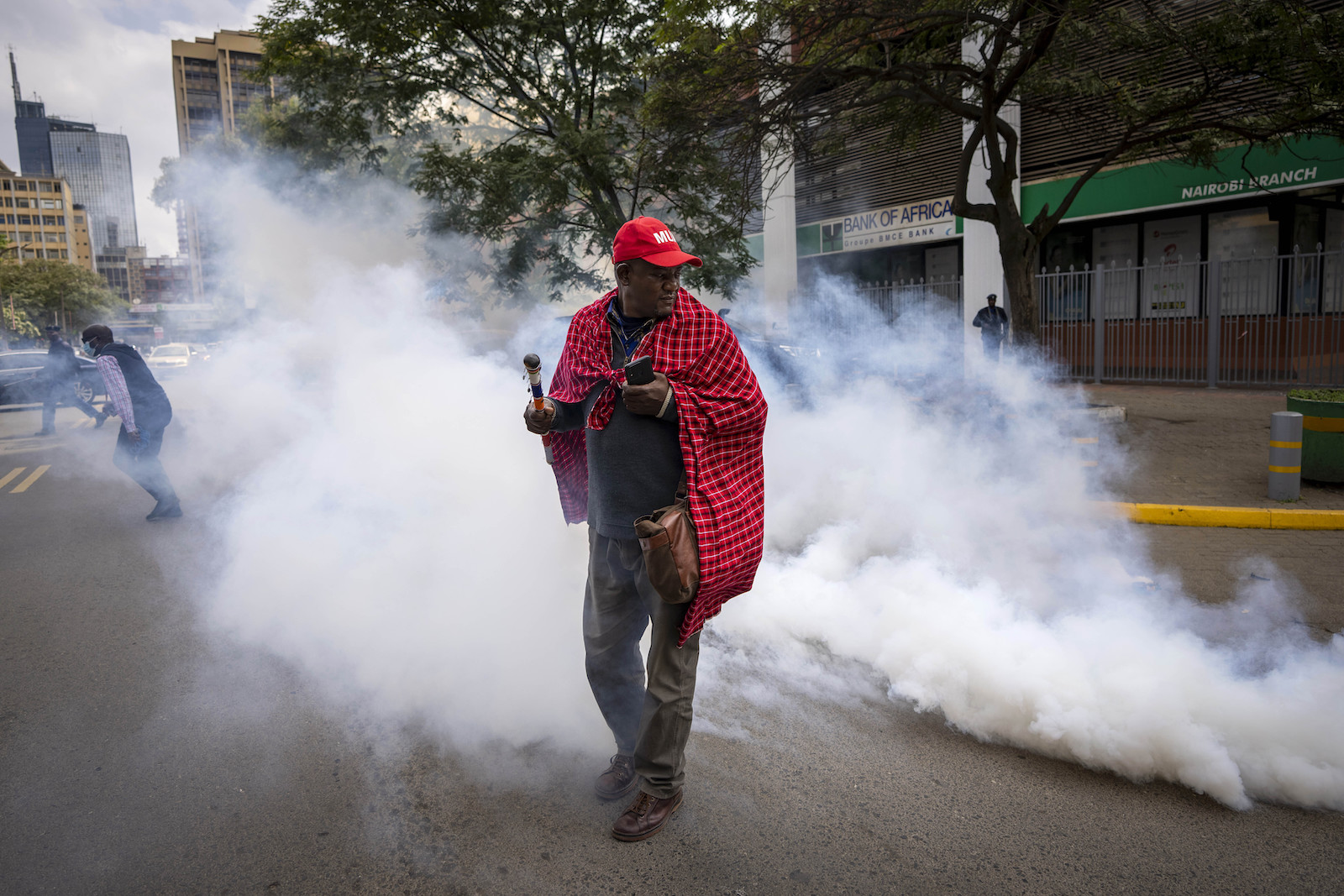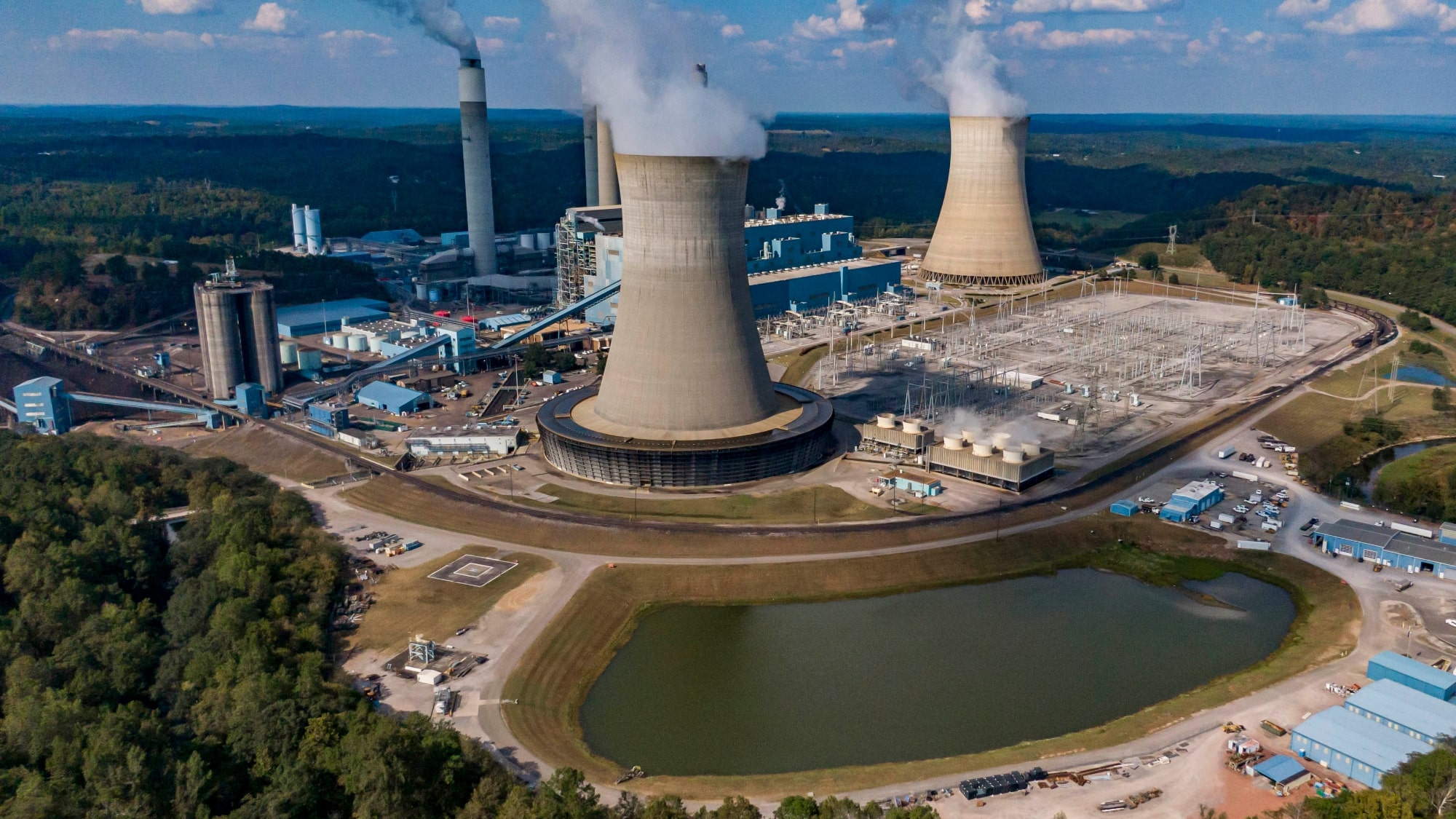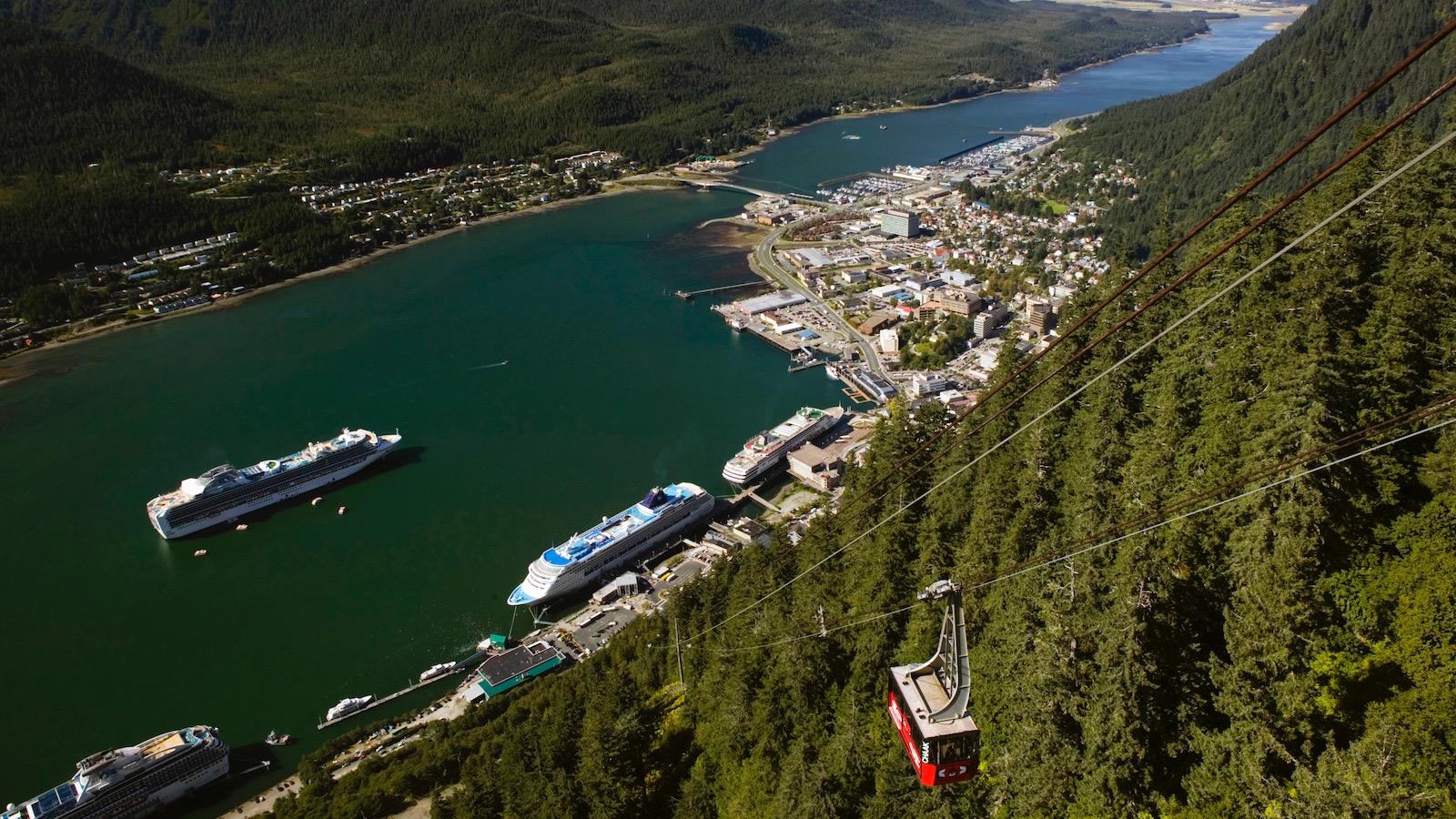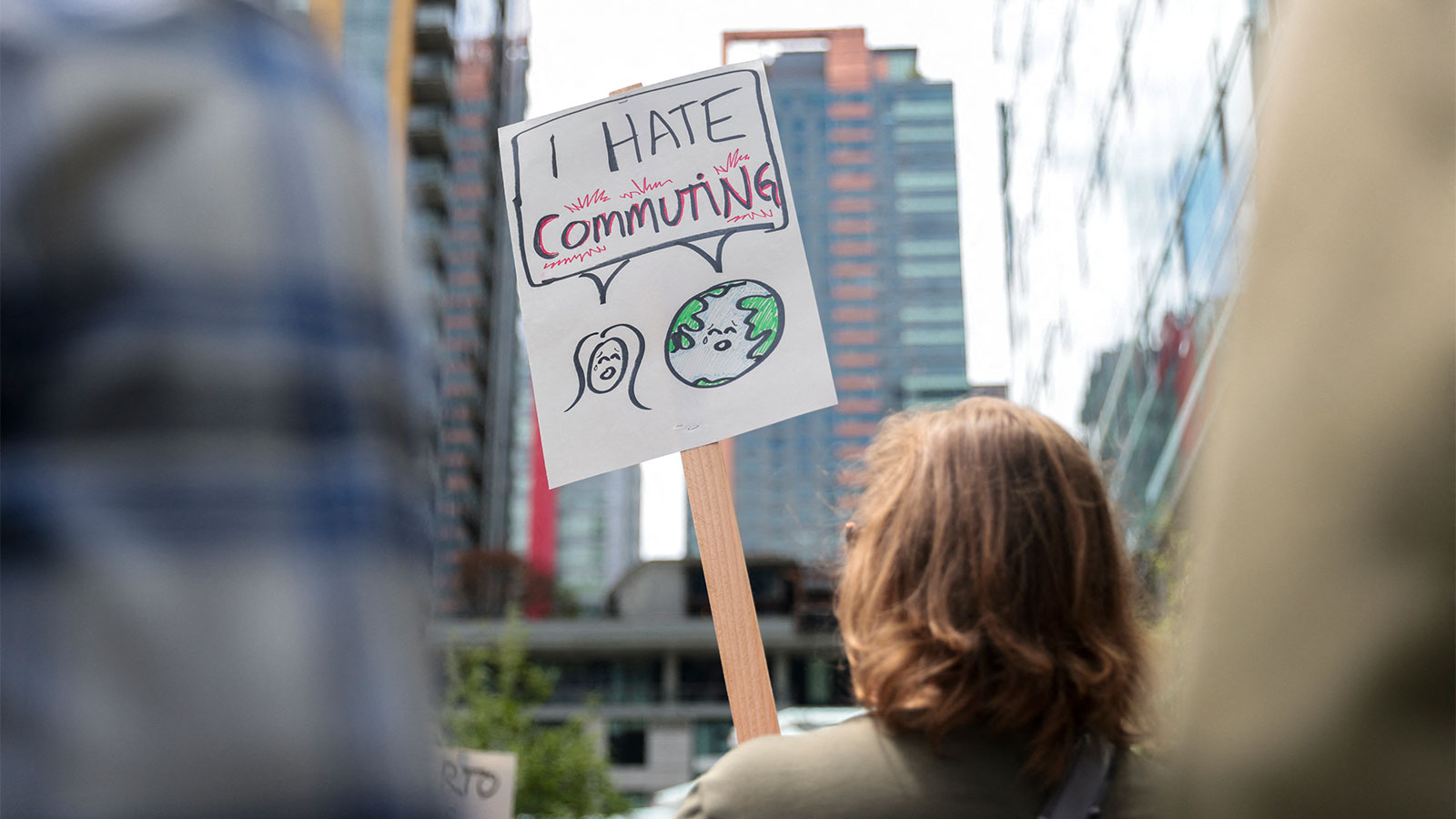This story is published as part of the Global Indigenous Affairs Desk, an Indigenous-led collaboration between Grist, High Country News, ICT, Mongabay, Native News Online, and APTN.
When around 70,000 Indigenous Maasai were expelled from their lands in northern Tanzania in 2022, it didn’t happen in a vacuum. For years, the Tanzanian government has systematically attacked Maasai communities, imprisoning Maasai leaders and land defenders on trumped-up charges, confiscating livestock, using lethal violence, and claiming that the Maasai’s pastoralist lifestyle is causing environmental degradation—a lifestyle that has shaped and sustained the land that the Maasai have lived on for centuries. This rise in criminalization, especially in the face of mining, development, and conservation is being noted in Indigenous communities around the world and was the key focus of a report released this week at the UN Permanent Forum on Indigenous Issues, or UNPFII, the largest gathering of Indigenous activists, policymakers, and leaders in the world.
“It’s a very serious concern because the Indigenous people who have been resisting the taking over of their lands and territories, they are the ones who most commonly face these charges and criminalization,” Victoria Tauli-Corpuz, former United Nations Special Rapporteur on the Rights of Indigenous Peoples told a packed panel on the topic on Tuesday. “There is a need to focus on criminalization because this is what brings fear to Indigenous communities and it is also what curtails them in their capacity to assert their right to self-determination.”
The report “Criminalization of Indigenous Peoples’ human rights” lays out the mechanisms by which Indigenous Peoples around the world are increasingly facing criminalization and violations of their rights with impunity. Indigenous land, subsistence and governance rights are often poorly implemented if at all, leading to violations when they intersect with government and third party interests, especially in extractive industries and conservation. In addition to historical discrimination, a lack of access to justice for Indigenous rights holders—including environmental and human rights defenders, journalists, and communities—leads to higher rates of arrests and incarcerations. The report provides recommendations for UN bodies, states, and other relevant actors to better address this growing threat.
The use of criminal law to punish and dissuade people from protesting or speaking out is typically the way people understand criminalization, said Fergus Mackay, a Senior Legal Counsel and Policy Advisor to Indigenous Peoples Rights International, an organization that works to protect Indigenous Peoples rights defenders. But the bulk of criminalization Indigenous Peoples face actually stems from the inadequate recognition or non-recognition of their rights by governments. “The lack of recognition of Indigenous rights in national legal frameworks is at the heart of this issue,” Mackay said.
This is especially prevalent when those rights intersect with public or protected lands, or areas that overlap with extractive interests, conservation, or climate mitigation measures. For example in Canada, First Nations Fishermen are being arrested and harassed by federal fisheries officers for fishing–rights protected by treaty. In the Democratic republic of the Congo, Baka Indigenous peoples have been beaten, imprisoned, and prevented from using their customary forest by eco guards hired to protect wildlife. A 2018 study estimated that more than a quarter million Indigenous peoples have been evicted due to carbon-offset schemes, tourism, and other activities that lead to the creation of protected areas.
“The criminalization of Indigenous People could also be considered the criminalization of the exercise of practicing Indigenous rights,” said Naw Ei Ei Min, a member of Myanmar’s Indigenous Karen peoples and an expert UNPFII member at Tuesday’s panel.
Defamation and smear campaigns through social media are often used in the lead-up to false criminal charges, especially when Indigenous peoples speak up against government-supported private companies investing in large-scale projects on their traditional lands, said Tauli-Corpuz. Berta Cárceres, the renowned Indigenous Lenca environmental defender who opposed the development of the Agua Zarca dam in Honduras, had previously been detained on fabricated allegations of usurpation of land, coercion and possession of an illegal firearm before she was killed in 2016. Tauli-Corpuz, the former Special Rapporteur, along with around 30 other Indigenous leaders, was herself placed on a terrorist list in 2018 by the Philippine government, a move that was criticized harshly by the UN.
Criminalization comes with serious consequences. In 2021, of the 200 land and environmental defenders killed worldwide, more than 40 per cent were Indigenous. According to Indigenous Peoples Rights International, an organization founded in part to address the growing concern over criminalization of Indigenous Peoples, despite representing only 6% of the global population, Indigenous defenders suffered nearly 20% of attacks between 2015 and 2022 and were much more likely to experience violent attacks.
The UN report also pointed to the high rates of incarceration of Indigenous People, and their disproportionate risk of arrest. In Canada, dozens of members of the Wet’suwet’en First Nation, who have long protested the creation of the Coastal GasLink pipeline that will cross their unceded territory, have been arrested and await trial in Canada. That trial is currently on hold because of allegations of excessive force and harassment of the police.
In countries like New Zealand and Australia, Indigenous peoples are already massively overrepresented in prisons. In Australia, despite making up only 3% of the population, Aboriginal Australians make up almost 30% of the incarcerated population. “This really speaks about the racism and discrimination that exists, which is the foundation for filing the criminalization cases against them,” said Tauli-Corpuz.
Indigenous journalists were included in this year’s report as being increasingly at risk of criminalization. In 2020 Anastasia Mejía Tiriquiz, a Guatemalan Kʼicheʼ Mayan journalist was arrested and charged with sedition after reporting on a protest against the municipal government. And just this year, Brandi Morin, an award-winning Cree/Iroquois/French journalist from Treaty 6 territory in Alberta was arrested while covering an Indigenous-led homeless encampment in Edmonton.
Indigenous Peoples are also affected by the growing use of criminal law to deter free speech and protests. Since the Indigenous-led protests against the Dakota Access Pipeline on the Standing Rock reservation in 2016 lawmakers in two dozen states in the US have taken up bills that ratchet up penalties for pipeline protesters. Globally, laws targeting everything from anti-terrorism, national security, and free speech only add to the ability for states to lay criminal charges on Indigenous activists.
Olnar Ortiz Bolívar, an Indigenous Baré lawyer from Venezuela who works to defend the rights of Indigenous communities, has been the target of both physical violence and harassment for his work in the Amazon, an area where illegal miners, criminal organizations, and the government are competing for control of resources, especially gold. He has been an outspoken critic of the Government-designated mining area in southern Venezuela known as the Orinoco Mining Arc. Now he fears that a new bill introduced by the Maduro regime into congress, that effectively turns dissent against the government and protesting into a criminal act, will severely affect his ability to continue to speak out against such projects.
“It’s a contradiction because we have rights in theory, but we don’t have the right to practice those,” he said. “What they are doing is taking away the freedom of expression of Venezuelans and, evidently, of the Indigenous People, who are increasingly vulnerable.”
As countries attempt to reach their goals of protecting 30% of their lands and waters by 2030 along with growing demand for transition minerals, criminalization of Indigenous Peoples is likely to grow, say experts. A survey of more than 5000 existing “energy transition mineral” projects found that more than half were located on or near Indigenous Peoples’ lands; for unmined deposits, that figure was much higher.
The report set forth a series of recommendations to counteract criminalization, emphasizing the importance of revising national laws, improving measures to protect Indigenous human rights defenders and access to justice, and promoting efforts to prevent, reverse and remedy criminalization and its consequences.




